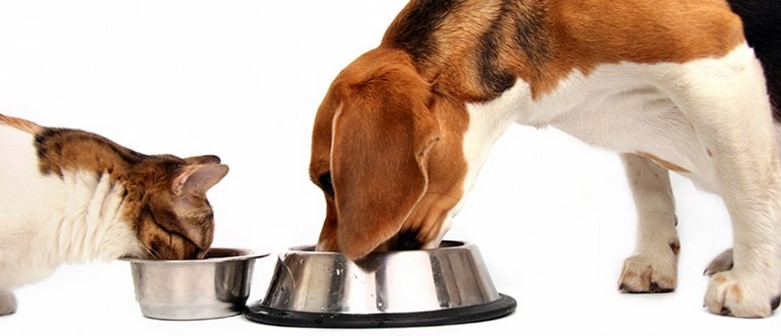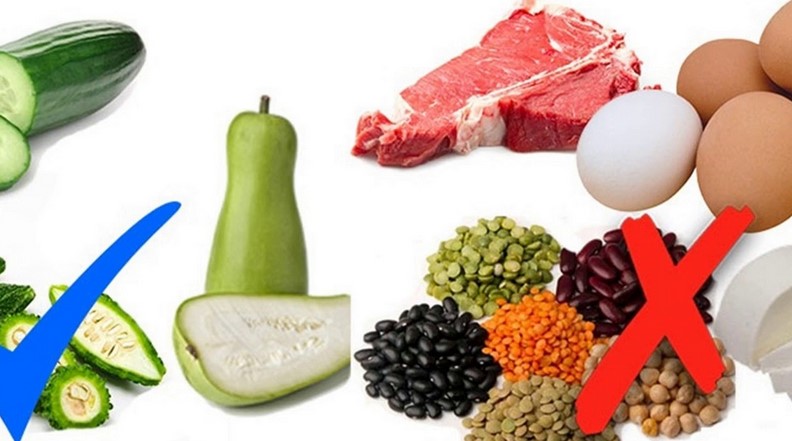When you think of nutrition for dogs with kidney disease, you often think of protein and water. But, did you know that these two nutrients are essential for maintaining kidney health in dogs? Here’s an overview of their importance for dog health. If you’re unsure about what to feed your dog, consult your veterinarian. A vet can prescribe a dietary plan that is appropriate for your dog’s condition. In the meantime, here are some tips for making a kidney support diet.
After reviewing the best dog food for kidney disease, we recommend that you check out Hill’s Science Diet Kidney Care dry and canned food. This top-quality diet has been clinically proven to prevent further kidney damage for dogs with chronic kidney disease.

Nutrition and Kidney Disease for dogs
One of the primary roles of your dog’s kidneys is to remove waste from its bloodstream. Protein-induced waste products are a major source of waste in your dog’s diet. It’s important to limit the amount of protein-induced waste in your dog’s diet. A recent focus on improving protein efficiency ratios, which measures the weight gain your dog receives per unit of protein, has been made. For healthy kidney function in dogs, fresh fruits and vegetables are an excellent source of vitamins and minerals.
Vegetable oils are high in omega-6 essential fatty acids, which are inflammatory. They are also known to be harmful to dogs with kidney disease. Flax seed oil has more omega-3 fatty acids than most plant oils, but it contains a higher amount of omega-6. Olive oil, although it contains mostly omega -9, is safe for your dog to consume in limited amounts. It’s important to monitor your dog’s diet for signs of kidney disease, because your veterinarian can recommend the best diet for your dog.
Kidney Disease in Dogs
Diet for dogs with kidney disease should contain low amounts of protein, salt, and calories. A high fiber diet is beneficial, as are vegetables and fruits that contain plenty of fiber. Cranberries and cabbage are good for dogs with kidney disease and urinary tract infections, while bananas contain potassium and can help prevent bloating and diarrhea. Although some dogs with kidney disease may experience digestive issues, the good news is that they can still enjoy their favorite treats!
While a high- protein diet is not always necessary, a diet with 14-21% protein is ideal for dogs with kidney disease. The high protein content of a dry food meal should be cut in half before a kidney-damaged dog begins eating it. If your dog’s appetite is low, try changing brands to one that is low in protein. A vet may recommend adding an appetite stimulant as well. If the food doesn’t meet these criteria, you may need to add extra water.
protein
A protein-restricted diet is usually prescribed for dogs with chronic kidney disease (CKD). These diets reduce the amount of nitrous wastes that are excreted by the kidneys. Nitrous wastes are associated with clinical signs of ureaemia and azotaemia. While there is no clear cutoff point, lowering protein in the diet may be beneficial for dogs with CKD.
In this article, we will discuss the reasons for and benefits of protein for dogs with kidney disease. A high- quality protein will improve your dog’s health and lifespan, but limiting protein will only be effective in dogs with advanced kidney disease. In addition, reducing protein will not improve your dog’s quality of life, increase the lifespan, or delay the progression of kidney disease. As a rule of thumb, protein restriction should be limited to severely ill dogs.
A healthy protein diet for dogs with kidney disease should include leafy greens. These greens are rich in enzymes, whole-food vitamins, and prebiotics. Other food sources that contain these nutrients include raw garlic, mushrooms, and dandelion greens. It’s also important to avoid commercial diets for dogs with kidney disease. Instead, opt for fresh whole foods that contain easily digestible protein. A raw diet is best for most dogs.

water
If your dog is suffering from kidney disease, you may need to increase the amount of protein it takes in their diet. Their kidneys require a lot of protein to function properly, so they should avoid eating too many cereals and other low-quality sources. The protein in their diet should be the highest quality, with the appropriate amount of fat and carbohydrates. They should also get plenty of potassium, magnesium, and B vitamins. Your veterinarian can help you determine the appropriate amount of these nutrients in your dog’s diet.
Your dog will most likely drink more water than usual, especially if he or she is experiencing polyuria or polydipsia. This excessive drinking is also known as polyuria, and it is most evident when your dog is prone to nighttime accidents. This increase in urine volume is a result of increased waste and fluid in the blood, so your dog may have frequent accidents, including in the house. Water is essential for dogs with kidney disease, and dehydration can worsen the condition.
Phosphorous
While it’s hard to avoid high phosphorus levels in your dog’s diet altogether, reducing its dietary intake can help manage the symptoms of kidney disease and lower the workload on your dog’s kidneys. Low phosphorus dog foods are widely available, and are not just for people with kidney disease. They can benefit dogs of all breeds, even healthy ones. But if you want to make the diet changes for your dog easy, you need to be aware of what ingredients to avoid.
The highest phosphorus foods include bones, dairy products, fish, organ meats, and egg yolks. Low phosphorus grains are good for dogs with kidney disease. Grain-based foods are generally low in phosphorus, but they should be cooked. Some grains, such as white rice, contain moderate amounts of phosphorus, so be sure to check your dog’s food label before buying a new diet.
Omega 3 Fatty Acids
Using omega-3 fatty acids as a supplement for your dog may benefit your pet. While the recommended doses are high, the maximum daily allowance of omega-3 fatty
acids is too low for many dogs. You should discuss the benefits of these supplements with your veterinarian before starting them. Your vet will also determine the right dosage for your dog. Omega 3 fatty acids are available in many food supplements. Just be sure to choose a high- quality brand with good quality control.
While it is true that omega-3 fatty acids help dogs with most heart problems, it’s important to note that supplements and fish are different things. In most cases, dogs with kidney disease should not ingest fish oil, as fishy burps are the digestive system’s way of telling us that it’s not good for our dog. Furthermore, fishy burps can cause indigestion and acid reflux.
sodium
Limiting sodium in your dog’s diet may be beneficial if your dog has kidney disease. Reducing sodium can help reduce the workload on the kidneys, and help them maintain normal blood pressure. The trick is knowing what to avoid. Pay close attention to treats, including jerky and cheese slices. These treats tend to be high in sodium. Avoid giving your dog these treats if your dog has kidney disease. If your dog is unable to eat, you can substitute a wet diet.
Sodium is also found in many types of food, including kibble. If your dog is resistant to food, consider reducing its intake of food. If your dog is avoiding his meals, you may be dealing with fat intolerance. Other signs of a dog’s fat tolerance include reluctance to eat, abdominal pain, and vomiting. Your veterinarian may want to investigate the cause of the problem and prescribe a medication accordingly.
How to Feed Dogs With Kidney Disease
One important consideration when determining how much protein your dog should consume is the quality of the proteins in their diet. High-quality proteins, such as eggs and meat, can prevent kidney damage. While low-quality protein can be harmful, there are exceptions. Low- quality protein may be detrimental to your dog’s kidney function, especially if it’s raw. Raw meat is preferred. Eggs contain high phosphorus and protein, and if you feed your dog with kidney disease, be sure to have your veterinarian approve them for consumption.
One of the best ways to encourage your dog to eat is to add flavor. A little bit of odor can go a long way in enticing your dog to eat. Try adding ground beef, hard-boiled eggs, or ground liver treats to your dog’s diet. You can also include blue-green algae or canned pumpkin. Avoid giving your dog too much sodium and high protein. A high-fat diet may lead to pancreatitis, which is a potentially fatal kidney disease.
Suffering from chronic kidney disease can be a scary experience for your dog. Not only does he have to deal with the fact that his kidneys are not working properly, but he must also sometimes endure a change in diet that may include both reduced protein and phosphorus levels. As you continue to support your dog through this health condition it is important to understand the recommended foods and treats.


